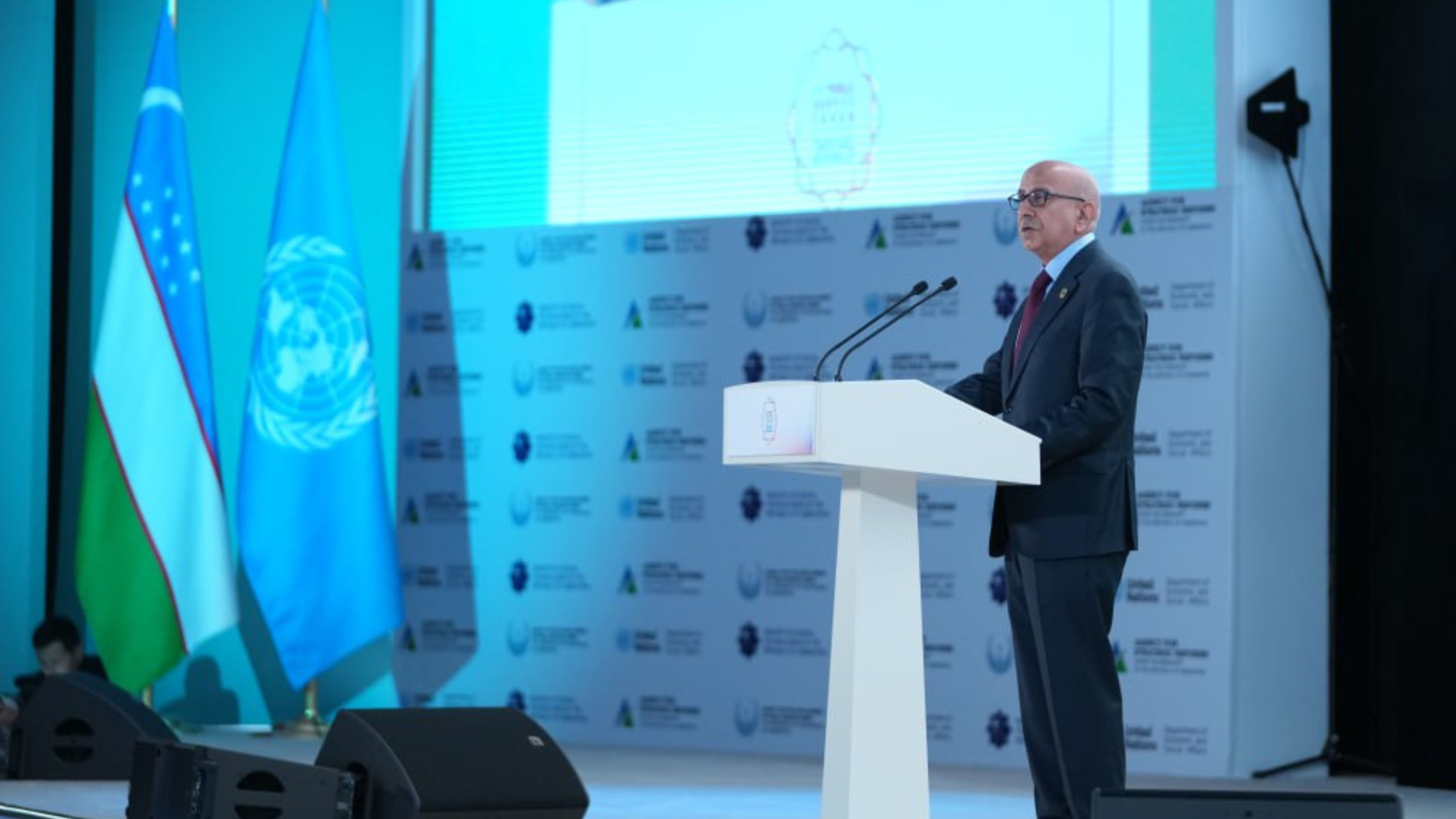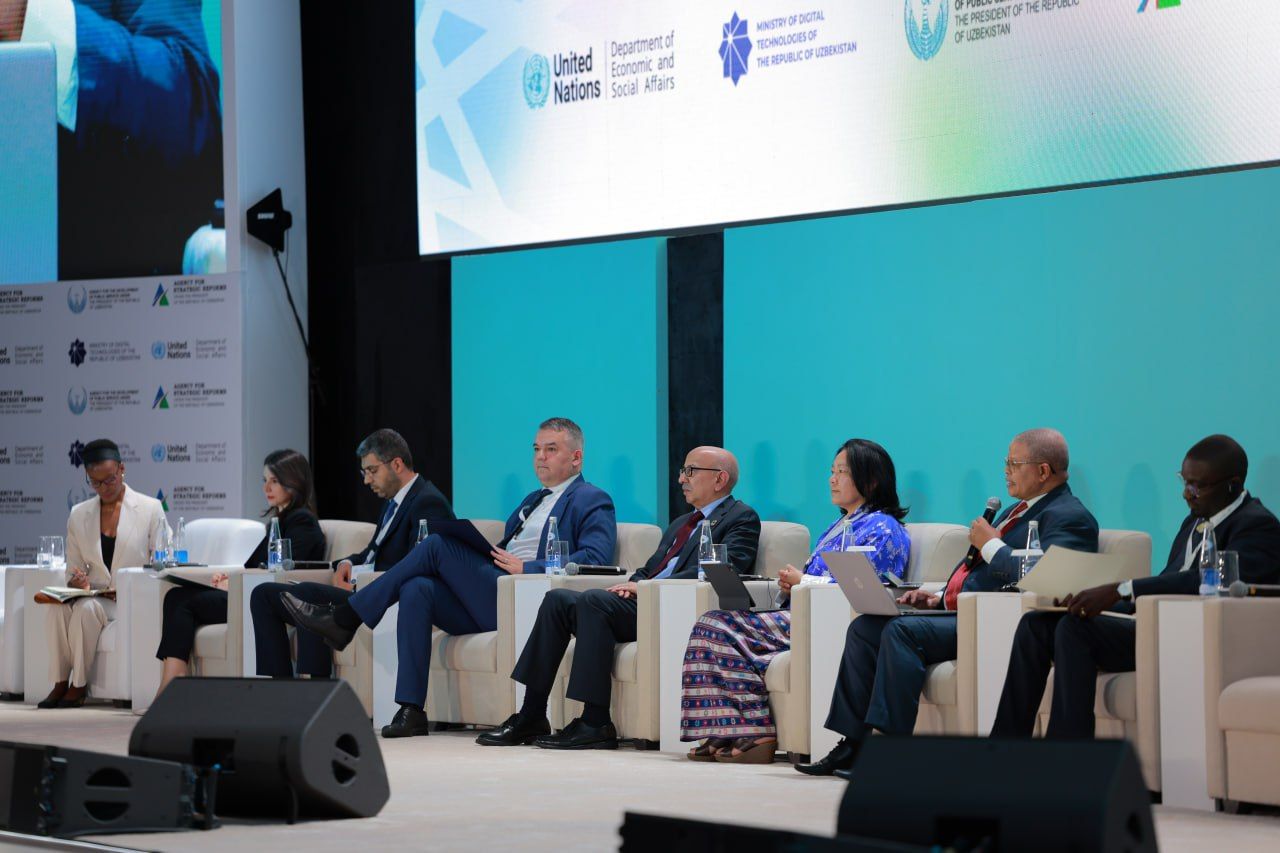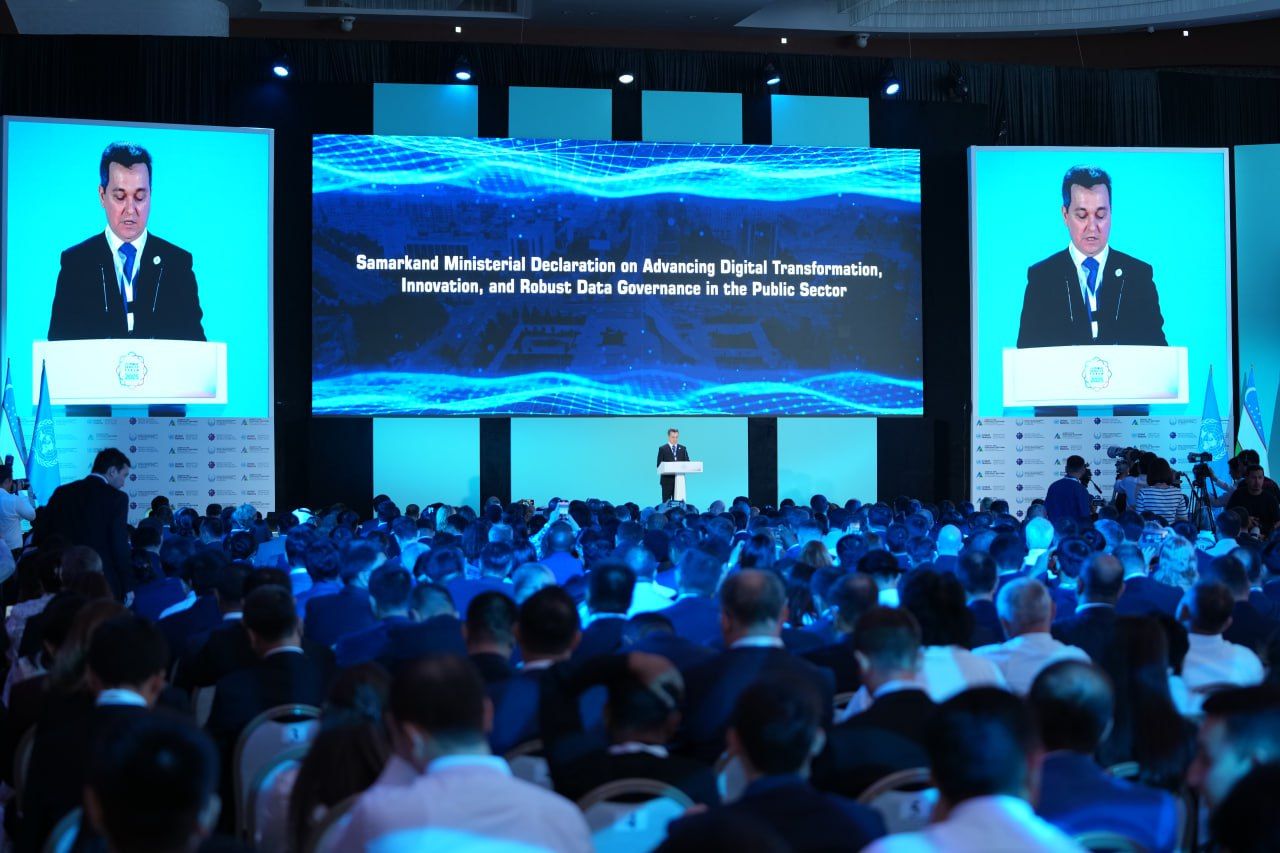‘Let us act boldly, inclusively and together’, says UN at the Uzbekistan’s Public Service Forum
By James Yau
The United Nations Public Sector Forum in Samarkand saw the participation of over 400 senior public administrators and experts from around the world to address how the Sustainable Development Goals can be met by 2030.

UN Assistant Secretary General, Navid Hanif, reaffirmed both the importance of public servants and the need for accelerate action. Image: UNPSF 2025
As one of the world's oldest continuously inhabited cities, Samarkand is renowned for its rich history, ancient innovations, and as a key hub on the ancient Silk Road.
It was in this city with a rich cultural heritage, nestled in the Zerafshan river valley, that branches of the United Nations (UN), heads of governments, and public administration experts from around the world gathered to discuss how the public sector can pioneer new innovations to tackle the challenges of our time.
At the conference, the UN Assistant Secretary General, Navid Hanif, noted that public servants are the unsung architects of a better future without fanfare and often at great personal sacrifice.
“The public sector depends on dedicated, skilled public servants who are crucial to building trust in institutions and promoting good governance at a time when public service is belittled on the line,” Hanif added.
He was addressing more than 800 delegates from around the world who had gathered in Samarkand Congress Centre for the UN Public Service Forum (UNPSF) 2025 from June 23-25.
Hanif gave a sobering reminder that the public sector collectively is falling behind in meeting its goals.
The public sector was working under a ticking clock, with five years remaining until the deadline for achieving the 2030 Agenda for Sustainable Development is reached, the need to accelerate action is more urgent than ever, he noted.
“Let us act boldly, inclusively and together. Let us build systems that deliver not only services but trust, not only efficiency but dignity, not only connectivity but community.
“With the right foundation, we can still accelerate towards the future where public services are not just promised but delivered,” said Hanif.
Under the three themes of digital transformation, last mile delivery and accelerating innovation, UNPSF 2025 provided a platform for public administrators to build capacity and share experiences in service delivery.
GovInsider was invited by the Uzbekistan government as a media partner to the conference.
To subscribe to the GovInsider bulletin, click here.
Transforming and accelerating public services by 2030
The 2030 Agenda for Sustainable Development was adopted in 2015, with the aim to end poverty, protect the planet, and ensure prosperity for all.
The agenda outlines 17 Sustainable Development Goals (SDGs) that address various global challenges, including poverty, hunger, health, education, gender equality, and climate change, all to be achieved by 2030.
Hanif stressed the role of public servants once more during a ministerial roundtable on public sector transformation.

“The United Nations is here to inspire to restore your confidence and hope in the better future that is coming out despite the turbulent times,” he said, highlighting the importance of cross-agency collaboration and leveraging UN’s pool of technical expertise in designing localised policies.
“We offer state-of-the-art knowledge, because we run e-government services in 193 countries and we get the data, policy proposal, and impact. All of these are captured in our government survey and shared in knowledge with each one of you and everyone.”
Georgia’s Minister of Justice, Paata Salia, added to the discourse explaining that “innovation in public service is not simply an option” but a “necessity” in his country.
“The cornerstone of our agenda is public administration reform strategy, which encompasses the development of a transparent, accountable, efficient and corruption-free governance system, where the state institutions implement policies that are tailored for the needs of the citizens.”
He highlighted how Georgia applied the UN principle of “leaving no one behind”, which was demonstrated through its Public Service Halls that offered over 500 government services in one place.
“This model streamlines service delivery, reduces administrative burden, [and] strengthens institutional credibility,” added Minister Salia.
In another ministerial roundtable, Albania’s Minister of State for Public Administration and Anticorruption, Adea Pirdeni, highlighted the role of digitalisation to increase the efficiency of public administration and make services more accessible for citizens.
Currently, over three million people are registered on the Albania portal, benefiting from 1,240 online services.
This was a major transition from the only 14 services offered in 2013 leading to the country’s remarkable improvement in the UN’s e-governance ranking from 114 to 62.
“The growth of the programme that we achieved overall was quite satisfying. But on the other hand, we have been increasingly cognisant to ensure that these services also become much more intangible and much more accessible to all those who have specific impairments,” Minister Pirdeni said.

The session highlighted strategies to accelerate public service across the diverse challenges of the countries represented in the discussion.
Namibia’s Chairperson of the Civil Service Commission, Salmaan Jacobs, shared how the country’s small population of about three million in relation to its vast land area left residents having to travel great distances to receive different public services.
“With regard to the policy framework, Namibia has a decentralisation policy in every act through which services are brought closer to the people,” Jacobs explained.
Public service recognised internationally
The opening day of the Forum also saw the host nation reaffirm regional cooperation by initiating the ‘Samarkand Ministerial Declaration on Advancing Digital Transformation, Innovation, and Robust Data Governance in the Public Sector’.
The Declaration identified seven key priorities reflecting global challenges and opportunities related to digitalisation and promotes a two-way cooperation between the North and the South in enabling digital transformation.
The priorities include digital information, responsible artificial intelligence (AI) adoption, data governance, cybersecurity, and global cooperation.
“This is not just a declaration, it's a shared commitment, and we hope this summit will become a starting point for a new step towards a distributed and equitable division,” said the Republic of Uzbekistan’s Minister of Digital Technologies, Sherzod Shermatov.
The final version of the draft remains accessible to all participants throughout the forum, prior to its circulation to members and observers of the UN General Assembly later this September.

The UNPSF also hosted eight capacity development workshops focusing on thematic areas ranging from transformative leadership and public sector upskilling to digital governance and public sector innovation.
Co-organised by the United Nations Department of Economic and Social Affairs (UN DESA) and the Ministry of Digital Technologies of the Government of the Republic of Uzbekistan, the opening of the UNPSF also coincided with the UN’s Public Service Day.
“It's an honour to open this forum and join you in celebrating the dedication of public servants from all over the world. Your commitment to public service is the backbone of effective governance and the engine driving sustainable development,” said Hanif.